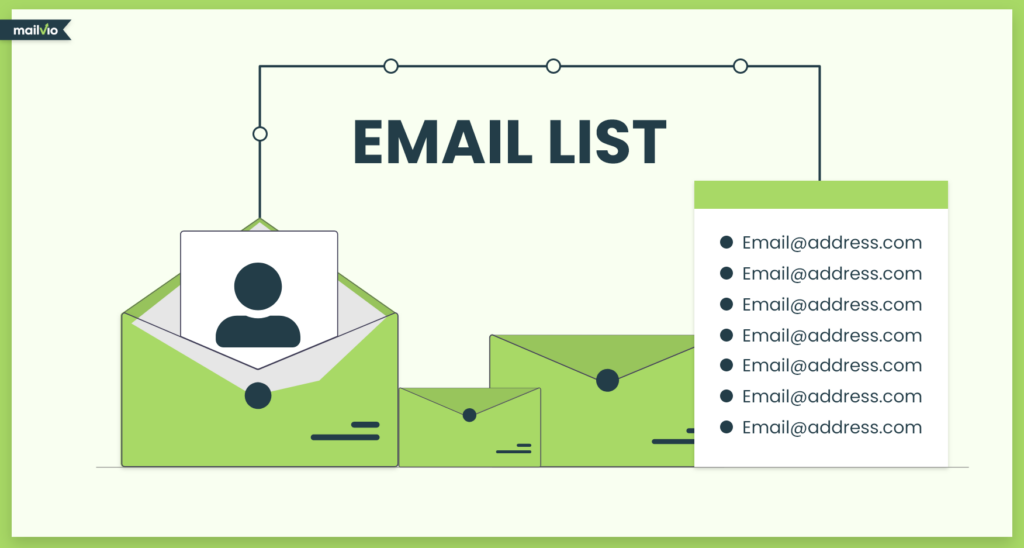Pro Facts For Deciding On A Hematologist Email list
Wiki Article
What Are The Important Things I Need To Consider When Buying An Email List For Family Medicine?
There are a variety of factors to consider when purchasing an email database for Family Medicine. This will ensure that you receive high-quality information that is reliable and legal, to use in your marketing campaign. What to consider is 1. Accuracy of data and quality
Data source: Ensure that the source of data comes from verified and trusted sources. These include licensing bodies, medical directories professional associations, opt-in database. The email addresses for practitioners in family medicine must be current, accurate and suited to your target audience.
Verification Process: Ask the provider about their verification process. Inactive or incorrect email should be deleted and the email list regularly updated. Validated email addresses lower bounce rates and enhance delivery.
Segmentation options. The list should permit segmentation based on factors like geographical area (country/state/city) and years of experience (or practice size) or specific areas of particular interest. Segmentation allows for more individualized and targeted outreach and improves engagement rates.
2. Conformity to Legal Regulations
Data Privacy Laws – Ensure you comply with the General Data Protection Regulations in Europe as well as the California Consumer Privacy Acts in the U.S.A. The email addresses must only be obtained in accordance with legal requirements and consent to stay clear of the risk of regulatory sanctions.
CAN-SPAM Act Compliant: If your marketing via email is carried out in the U.S.A. make sure that your list of recipients is in compliance. This means providing clear opt-out mechanisms and avoiding misleading subject lines or false information within your emails.
Check to see if emails have been collected via opt-in consent. This means the physicians in family medicine consented to being targeted by third party companies via marketing communications. This guarantees that privacy laws are being followed and also reduces the chances of receiving spam complaints.
3. Provider Reputation
Reputable Supplier: Pick a provider that has an excellent track record of providing data that is safe and of high quality. You can look up reviews and testimonials or cases studies about the provider to make sure they are reliable.
Transparency: Providers must be transparent about the ways they obtain data as well as how often they update their data. If the provider can't provide a detailed explanation of their data-sourcing practices, it's a red flag.
Customer Support - Find firms that provide robust customer support. There may be assistance needed with technical questions or list segmentation. Also, making sure that your list is compliant with standards.
4. Cost and Return on Investment
Pricing Models: Providers offer various pricing options, such as pay-per-contact, flat fee, or subscription services. You should choose a price structure that's compatible with your budget.
Refund and Replacement Policy Reputable providers offer an option to replace or refund in the event of an invalid or out-of-date email addresses. Clarify the terms of this policy prior to purchase to ensure your investment is protected.
Cost-effective: Concentrate on more than just price. While a lower-priced list may look appealing, it might lead to poor deliverability or high bounce rates. It's better to purchase a top-quality list that offers greater targeting and higher engagement rates.
5. Data Ownership and Usage
Single Use vs. Clear the confusion of multiple use If you're able to use the list more than once or if it's only a once-in-a-lifetime use. Lists allowing multiple campaigns can be more valuable, particularly in the case of ongoing outreach.
Exclusive vs. Shared Lists: Check whether a list is just available to your business or whether multiple buyers are purchasing it. Lists that are exclusive to you will less likely result in crowds that are too saturated and usually result in higher engagement rates.
6. Data Format and Integration
CRM Compatibility - Ensure that the email list you are using is compatible with your Customer Relations Management (CRM) tool or email marketing software (e.g. CSV or Excel). This makes it easy to integrate and makes it user-friendly.
Easy-to-use: Ensure that the list you create is organized and is easily segmented or filtered based on criteria relevant to your campaign. This will help you streamline your messaging and targeting.
7. Ethical Considerations
Relevance of Outreach: Family medicine professionals are professionals who work full-time Therefore, ensure that your outreach is pertinent to their work. Avoid using generic messages that are irrelevant or not relevant. It could damage the reputation of your brand or cause complaints about spam or low engagement.
Avoid Spam Practices. Send emails strategically. Don't over-email. Inundating recipients with numerous emails or insignificant offers could result in unsubscribes, spam complaints, or even a negative reputation for the sender.
Click here to read the full article.
To ensure the success of your campaign to reach your audience, you must focus on three aspects to ensure your outreach is successful: data quality and legal compliance. Find authentic, segmented data that is compliant with privacy regulations and aligned with your target group of customers. By investing in lists of high-quality and sending relevant messages, you will improve engagement rates and increase the ROI of your marketing. See the best family medicine email list for site tips.

What Should I Think About When Purchasing An Appending Device For Data?
Data appending is a method that adds missing or additional data to your database. This is accomplished by adding email addresses, phone numbers, demographic details, etc. By adding information that is missing, such an email address, phone number address, or other demographic information, you can enrich your database. Below are key considerations when buying data appending services: 1. Data Accuracy
The source of data: Make sure that the provider of data used to append it uses reliable, high-quality sources such as verified databases, public records, or directories with opt-in options. Trustworthy data providers typically collect their data from legitimate sources. This guarantees that the information appended is accurate and up-to-date.
Verification Process Examine whether the provider follows an extensive process for validating and verifying the data appended. This ensures that the data is accurate, current and appropriate to your needs. Regular updates and data cleansing processes should be included in the service offered by the provider.
Match Rate: Providers have various match rates. This is a reference to how many of your records could be improved by incorporating new information. You should aim for a balanced approach with high accuracy in data and high match rates.
Customization If you have particular needs, be sure that the provider can offer customized appsend services for data. This could include appending different types of data, like contact information, behavioral information, or demographic and firmographic information.
2. Security of Data and Privacy
Compliance with Regulations: Data appending requires handling personal data and therefore the appending service has to comply with relevant privacy laws and regulations. This includes General Data Protection Regulation (GDPR) and the California Consumer Privacy Act(CCPA) and as any other privacy laws that are applicable. The data appended needs to be collected, used, and processed legally in order to avoid fines.
Consent Management: Make sure that the appended data originates from people who have provided explicit consent to their data to be disclosed. Avoid data sources that rely on shady practices or that violate the privacy of users as it could lead to ethical and legal issues.
Data Security - Verify the provider's data security policies to ensure the confidentiality and integrity of your database, as well as any information that is added to it. In this list are protocols for secure data transfer, encryption, access controls, and other security measures.
3. Provider Reputation
Reputable Vendors: Choose a vendor with a good reputation for providing reliable and compliant services. Check their testimonials, reviews and case studies to see the quality of their services. A company that is established is more likely than not to provide high quality services or ensure legal compliance.
Specificization in a particular industry Some vendors are experts in specialized industries like retail, healthcare, or finance. If you operate in a specific area, look for an expert who has knowledge and knowledge in your field. These companies may have more specialized solutions to meet your needs.
4. Cost as well as Return on Investment (ROI).
Pricing Models: Appending services for data offer a range of pricing models. They offer flat rates for bulk updates or per-record fees. Make sure that you are aware of pricing structures and the way it is aligned to your budget. Be cautious of services that appear cheap, as this may indicate poor data.
Calculate your potential ROI by incorporating information. A good service will assist you in improving your marketing effectiveness, boost engagement, and increase conversion rates. Comparing the cost of a service versus the gains you can expect to gain from having more and more relevant data is a good way to assess the value of a service.
5. Data Types and Appending Options
Data types: Consider the types of data that you want to append to your database. Common types are:
Email addresses: essential for emails.
The importance of phone numbers is in sales outreach and customer support.
Demographic data: beneficial for marketing segmentation and targetting.
Firmographic data is crucial for B2B marketers that want to reach businesses based on revenue, size of employees or industry.
Social Media Profiles: Some providers provide the option to append social media handles. These are a great way to aid in social and digital marketing efforts.
6. Data Integration and Format
Compatibility: Make sure the data you add is provided in a format that is compatible with your Customer Relationship Management (CRM) software Marketing Automation Software or other tools that you utilize. CSV, Excel or API integration are common formats that will make it easy to import and use data.
Data Cleansing & Enrichment: An appending service provider that is good should offer cleaning and enrichment solutions. This includes correcting inaccuracies or duplicates, as well as eliminating old records. Data enrichment is more than just adding new data. It also enhances the overall quality of your current database.
7. Ethical Questions
Transparency. Service providers must be open and transparent regarding how and where data is collected. Ethical services for data appending will be governed by strict rules regarding data source and usage. They will ensure that the data is legally collected and properly.
Effect on Engagement: Be mindful that appending contact information such as emails or phone numbers shouldn't lead to spammy or invasive methods. Use the appended data responsibly and ensure that you are following the best practices in outreach, providing opt-out options and respecting consumer privacy.
Conclusion
Concentrate on the data's quality, legal compliance and reputation of the service provider when buying a data appending. You should prioritize services that offer secured and verified data which complies with privacy laws such as the GDPR as well as CCPA. Take into consideration the long-term returns from investing in accurate, enriched data. When you choose the best data appending provider and focus your efforts on ethical practices to enhance the effectiveness of your marketing as well as business performance. Check out the expert data appending services for website examples.
